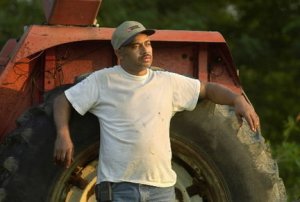By William A. Foster, IV
A nation may be said to consist of its territory, its people and its laws. The territory is the only part which is of certain durability. Laws change, people die, the land remains. — Abraham Lincoln
The Land Report recently released its annual 100 largest landowners in America. To no one’s surprise there was not one African American individual or family present on the list. The apex of African American land ownership was over 100 years ago in 1910 when African America owned almost 20 million acres. A far cry from the 160 million acres that should have been owned had Special Order 15 been honored by the U.S. government which is also known as “40 acres and a mule” to most African Americans. By the numbers we have lost over 50 percent of our land ownership the past 100 years and the number continues to drop at an alarming rate for a myriad of reasons. Given that land is the foundation for all social, economic, and political development it could be argued that you can measure a group’s power based on their land ownership. This has been true no matter the economic system in place throughout history. If this is the case then African America is seeing itself getting weaker and weaker generation after generation.
The largest landowner in the country is John Malone, owner of Liberty Media and something few know is he was the second largest shareholder in Black Entertainment Television behind the founders Bob and Sheila Johnson. His initial investment in the company was $180 000 in equity and a $320 000 loan. Eventually, the loan would be paid back but he retained his equity stake, which by the time of the company’s sale would see him receive a return of $700 million. Yes, the man made $700 million on a $180 000 investment. Needless to say, that can buy you a lot of land. In 2010, it allowed him to purchase the Bell Ranch, 290 000 acres of land in New Mexico, and as a result jumping Ted Turner as America’s largest landowner. Just between John Malone and Ted Turner they own over 50 percent of the amount of land that African America owns as a whole.
HBCU business schools have a unique opportunity to change the paradigm of African American land ownership for future generations. This is even more so true at HBCU 1890 schools where agriculture still comprises a major component within the institutions. A class designed around African American land ownership would go a long way to educating graduates, who will typically be in a much better financial position to accumulate land than those with less education. The classes themselves could teach among others things but not limited to; how to implement “poison pills” into their community to prevent gentrification, how to finance land, history of land ownership, timberland investments, and a myriad of other land-related subjects.
Gentrification alone is a problem plaguing a number of African American communities across the nation. This has been especially true for African American neighborhoods located near city centers as many in the suburbs are starting to move back inward. There is also the issue facing African American farmers in this country. Healthy Solutions reports that less than 2 percent of farms today are operated by African Americans in comparison to 14 percent in 1920. There is no doubt that if one examines African America as a nation that its food security and food dependence would have alarm bells ringing for decades now as this situation grows more dire. The USDA in 2010 settled an almost $1.3 billion discrimination lawsuit with 70 000 African American farmers. However, land ownership and African American farms continue to decline further compounding African America capability to have access to quality food options and increasing long-term health issues. I could go into how land ownership influences rezoning of political lines but then I might need to turn this into a book.
Unfortunately, it begs the question as many HBCUs move to a focus on “diversity” whether or not African American economic issues are even on the minds of many HBCU business school leadership. Our situation can not be handled as a “minority” situation. It requires a more targeted strategy to our social, economic, and political state. We can not continue to be the group who has the least but shares the most unless we are content with perpetually being in last and institutionally dependent on others. Land, it remains kind of a big deal.


Selma needs revitalization and my family has 192 acres that we are to old or to uninterested to develop. We would lime to sell to black investors.